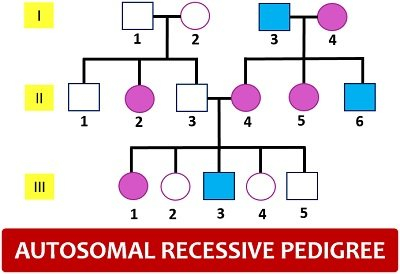A pedigree chart is a visual representation of a family’s genetic history. It shows the relationships between family members and can help track the inheritance of genetic traits over multiple generations. Pedigree charts are commonly used in genetic counseling to identify patterns of inheritance and assess the risk of genetic disorders.
Autosomal recessive inheritance is a type of genetic inheritance pattern where a trait or disorder is passed down through generations in a family. In autosomal recessive inheritance, an individual must inherit two copies of a mutated gene (one from each parent) in order to display the trait or disorder. If only one copy of the mutated gene is inherited, the individual is considered a carrier and may pass the trait or disorder on to their offspring.
Pedigree Chart Autosmal Recessive
How to Interpret a Pedigree Chart for Autosomal Recessive Traits
When looking at a pedigree chart for autosomal recessive traits, certain patterns can help identify the mode of inheritance. In an autosomal recessive pedigree, affected individuals are often born to unaffected parents, and there may be a higher frequency of the trait in siblings or cousins of the affected individual. Carriers of the trait may also appear in the pedigree as individuals who do not display the trait but can pass it on to their offspring.
